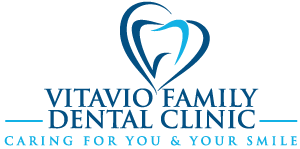Dental Cleaning FAQs
Do I really need to have my teeth professionally cleaned?
Yes. Even if you brush and floss after every meal and before bed, bacteria-harboring plaque can accumulate in the tiniest crevices, grooves and pits. Overtime, the teeth will begin to decay in those areas, which may result in pain and partial or total tooth loss.
What should I expect at my cleaning and exam consultation?
Your cleaning and consultation will consist of a visible examination of the teeth and gums. If you haven’t been to the Dental Hygienist in a while, you may also require x-rays for a more comprehensive view of your teeth. You’ll also consult with your Hygienist about any oral health problems you may have been having or questions that you may have. The cleaning will follow, during which a dental hygienist will use special instruments to remove hardened plaque from your teeth. Finally, your teeth will be polished before your Dental Hygienist discusses any treatment recommendations he or she may have for you.
What types of guidelines should I follow after my visit?
In between cleanings and consultations, be sure to maintain good oral habits at home. This includes daily flossing and brushing after meals. It’s also important to drink fluoridated water and use a fluoridated toothpaste.
Teeth Whitening FAQs
Am I a Candidate for Teeth Whitening?
You may be a candidate for professional teeth whitening if you are experiencing discoloration, but otherwise have healthy teeth and healthy gums. Schedule a consultation to find out if tooth whitening could be right for you. Some patients, such as those who are pregnant or sensitive to whitening agents, may not be candidates for professional whitening.
What Should I Expect When I Get My Teeth Whitened?
Teeth whitening consists of a thorough cleaning and polishing of the teeth, with all debris carefully removed. Your Dental Hygienist will then protect your gums before applying a whitening agent to the surface of your teeth. The product will be activated and left on the teeth for several minutes before being washed off with water. Your results will vary according to the natural shade of your teeth and degree of discoloration, but it is normal for patients to experience a lightening of several shades in a single visit.
What Type of Post-Treatment Care is Required After Having My Teeth Whitened?
It is normal to experience some tooth sensitivity following a professional whitening treatment. You may be instructed to avoid consuming highly pigmented beverages for at least 24 hours to prevent the teeth from becoming stained again. Examples include tea, coffee and wine. Depending on your results and long-term teeth whitening goals, you may also be sent home from your procedure with an at-home whitening kit for later use.
Preventative Sealants FAQs
Will dental sealants affect the feel or appearance of my child’s teeth?
Sealants bond directly to the teeth, where they harden to a clear or tooth-colored coat. This makes them virtually undetectable to others. Though it is normal to feel new sealants with the tongue, most children quickly adapt to their presence.
What will my child experience when getting sealants?
The process of getting sealants is fast and painless. The tooth is cleaned before the dentist paints the sealant onto the enamel. The sealant will immediately harden, acting as a barrier between bacteria and the chewing surface of the teeth. In most cases, sealants will last several years before needing to be reapplied. However, regular visits to the dentist will be necessary to monitor the condition of the sealants and examine their effectiveness.
Will sealants prevent all cavities?
While sealants are extremely effective for preventing tooth decay in children, they do not replace other forms of preventative oral health care. Children should still brush and floss each day using a fluoridated toothpaste. Regular dental exams and a balanced diet low in sugar are also essential for good long-term oral health.
Mouthguard FAQs
Do I need a custom mouth guard?
There are many reasons why wearing a custom mouth guard could be right for you. A few examples include:
- Nighttime wear to prevent damage from teeth grinding and bruxism
- Tooth and lip protection during high-impact sports, such as martial arts
- To serve as a barrier between the lips and oral appliances, such as metal braces
- To protect fragile bridgework
What should I expect when my Dental Hygienist fits me for a mouth guard?
Your visit will consist of taking an impression of your teeth that will be used as a mold for your new mouth guard. You may even be able to leave your appointment with your custom mouth guard in-hand.
Should I follow any special instructions?
Before you leave the clinic with your new mouth guard, you’ll receive instructions on how and when to wear it. If you suffer from TMJ disorders or bruxism, for example, you will likely wear your mouth guard at night. If you participate in recreational sports, however, you may only need to wear your mouth guard during physical activity.
